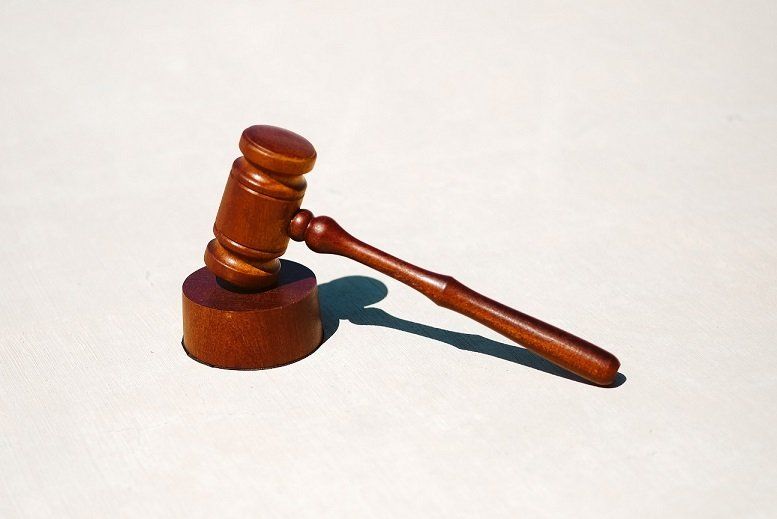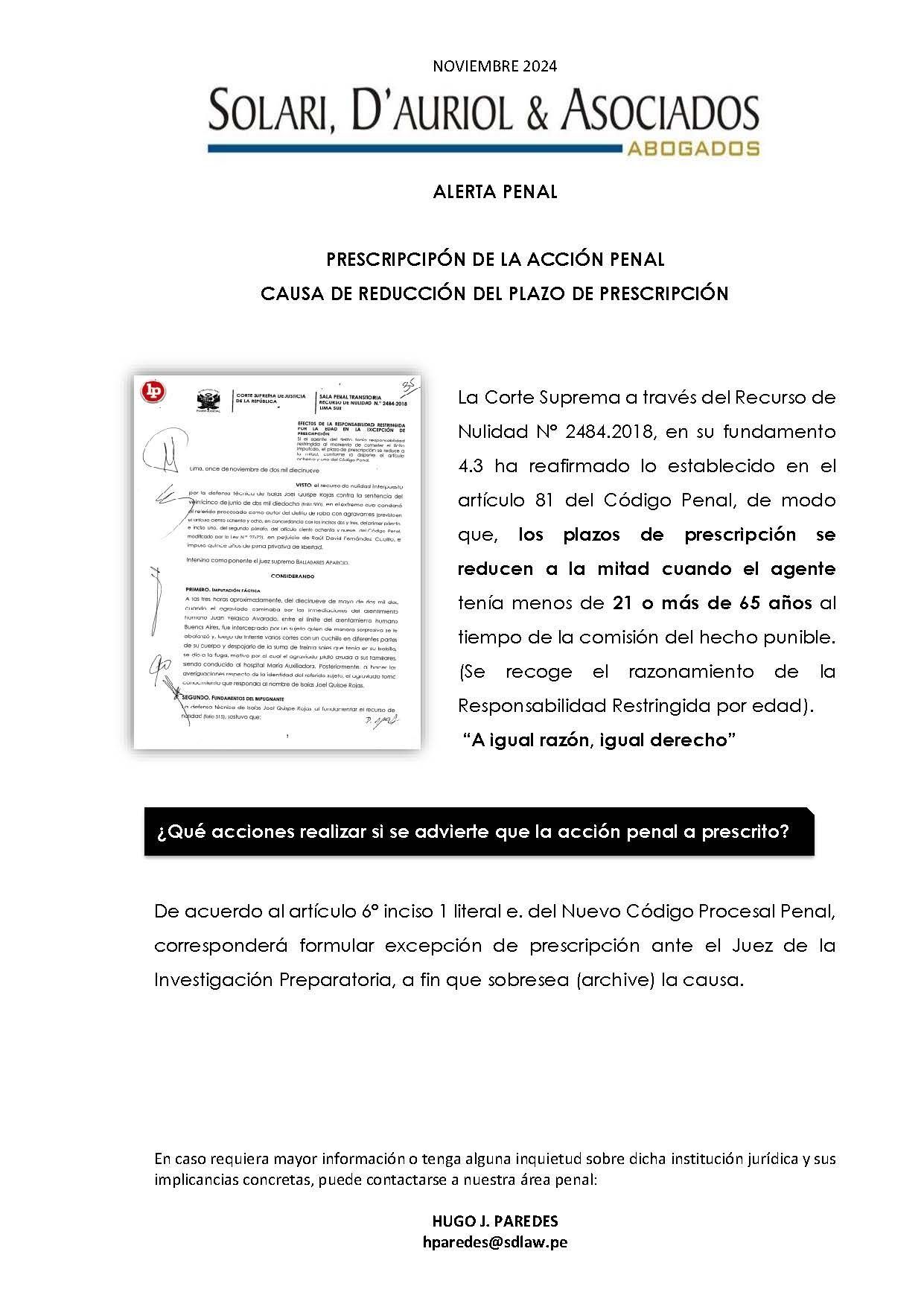International Execution Against Judgment Debtors

a. Introduction
The recognition of foreign judgments in Peru's legal system takes place through the so-called "exequatur procedure". This procedure consists of acknowledging the foreign judgment so as to grant it validity in Peru, which means that it will have the same force and effect as judgments issued by Peruvian courts. By this process, the judge gives legal validity to a judicial decision issued under a foreign legal system.
It can be said that the legal nature of the exequatur is chiefly that of a declaration of rights because the judge does not examine the merits of the foreign judgment, but rules only on its enforceability. A Peruvian judge will not examine a foreign judgment on the merits or on issues of procedure because this would effectively turn the Peruvian court into a court of appeals for
foreign judgments.
However, Peruvian legal doctrine holds that there is an exception to the rule that a Peruvian judge will not examine the merits of a foreign judgment. The Civil Code, which governs the recognition and enforcement of foreign judgments, states in Book X, title IV, article 2104, subparagraph 7, that foreign judgments will not be acknowledged or enforced in Peru if they are deemed to violate public order or moral conventions. The doctrine maintains that deciding whether the foreign judgment violates public order or moral conventions requires an analysis of the merits of the decision, meaning that the judge's decision will no longer be declaratory.
b. Regulation of foreign judgments and arbitration awards
The law that regulates the recognition and enforcement of judgments issued by foreign courts in the Peruvian legal system is set forth in Títle IV, book X, of the Civil Code, under the title "Private lnternational Law". The recognition and enforcement of foreign arbitration awards is governed by the General Law of Arbitration.1
lnternational treaties and conventions in force in Peru which leal with the recognition and enforcement of foreign judgments and arbitration awards prevail over the provisions mentioned above because they occupy a higher level within the Peruvian legal system.
International treaties and conventions signed and ratified by Peru for the recognition and enforcement of foreign judgments are the following:
- The Montevideo Treaty on lnternational Procedural Law of 1889;
- The Bustamante Code of 1928; and
- The Inter-American Convention on lnternational Private Law of 1979.
The treaties in force in Peru for the recognition and enforcement of arbitration awards are the following:
- The New York Convention of 1958;
- The Inter-American Convention of International Private Law of 1975; and
- The Montevideo Convention of 1979.
c. Exequatur Procedure
Exequatur is the recognition granted by a judge with proper jurisdiction to a decision or arbitratíon award issued by another legal system so as to give such decision or award full force and effect in the jurisdiction where enforcement is sought.
The purpose of the exequatur procedure is not to re-examine the merits of the decision, but to establish and verify that all formal requirements of Peruvian law regarding recognítion and enforcement of foreign judgments have been met.
d. Reciprocity Principle
For the recognition and enforcement of foreign judgments, Peruvian judges are required to take into account the reciprocity principie. This principie is applied in many countries, and its application may vary from one country to another. In Peruvian law, reciprocity with respect to judgments from any particular country is determined in accordance with that country's enforcement of judgments rendered in Peru.
Peruvian law applies the reciprocity principie to determine the validity of a decision issued in a country different to the one where it will be executed.
Accordingly, the principie ratifies the primacy which the litigation law granted to the treaties binding Peru on this issue.
When a judgment comes from a country with a legal system based on Common Law and which has no written laws or statutes regarding the enforcement of foreign judgments, reciprocity should be established by examining the applicable case law. The point is to demonstrate that such country grants comity to Peru by enforcing Peruvian decisions and that a Peruvian judge should extend comity to judgments from such country.
In the case of countries which have written laws regulating the enforcement of foreign judgments, reciprocity can be established simply by proving that the laws exist and are in effect. However, there remains the possibility that a Peruvian judgment may be theoretically enforceable according to the law, but that such enforcement is effectively denied by the application of case law or other dispositions.
e. Requisites for recognition of foreign judgments
To recognize and enforce foreign judgments in Peru, certain requirements must be met to the judge's satisfaction. These requirements are the following:
- The judgment cannot decide questions within the exclusive jurisdiction of Peru;
- The foreign tribunal must have proper jurisdiction over the controversy, pursuant to its conflicts of laws principles and the general principies of international jurisdiction;
- The defendant must have been properly notified, in accordance with the laws of the applicable jurisdiction, must have been granted a reasonable time to appear before the court and must have been granted due process in his defense;
- The judgment must have authority of res judicata under applicable law;
- There may not be pending proceedings in Peru between the same parties and regarding the same matter, if initiated before the filing of the case that resulted in the foreign judgment;
- The judgment may not contradict a prior judgment which meets all recognition and enforcement requirements of Peruvian law; and
- The judgment may not contravene public order and moral conventions.
In addition, judgments issued by foreign courts are enforced in accordance with applicable treaties, if any. In the absence of such treaty, the principie of reciprocity will apply. Accordingly, if the judgment comes from a country where the decisions of Peruvian courts are not enforced, it will not be enforced in Peru.
f. Procedure for recognition of foreign judgments
The process for recognition and enforcement of foreign judgments begins with a complaint filed by the interested party in the Civil Section of the Superior Court in the jurisdiction where the person against whom it is to be enforced is domiciled. This permits the courts to ensure that the judgment complies with the formal requirements established pursuant to law to be acknowledged in Peru.
This proceeding does not require the delivery of letters rogatory sent by foreign judges, since it is enough that the documents evidencing the judicial decision be properly legalized and, if necessary, translated into Spanish. Accordingly, documents written in English cannot be submitted without their corresponding official translation into Spanish. The following steps must be taken to ensure the recognition and enforcement in the jurisdiction:
- The complaint must be signed by a lawyer;
- A photocopy of the identity document of the person seeking enforcement and the representative must be included;
- The address of the defendant must be clearly specified by attaching a domicile certificate;
- In divorce cases, if applicable, a marriage certificate issued in Peru or recorded before the Peruvian Consulate must be
- The foreign judgment must be properly legalized by the Peruvian Consul and by the Ministry of Foreign Affairs;
- An official translation of the foreign judgment must be included;
- A certified power of attorney, through public writ or through act subscribed before the Court Secretariat, must be provided;
- The foreign court must have had proper jurisdiction over the controversy, pursuant to the rules of international law;
- In the case of divorce, it is necessary to certify that the matrimonial domicile is located in the place where the foreign judgment was issued;
- It must be certified that the defendant was notified pursuant to applicable law, that he was granted a reasonable time to appear before the court, and that he was afforded due process in the proceeding;
- It must be certified, by means of a decision or certificate issued by the foreign court, that the judgment has the quality of res judicata;
- It must be certified, through a certificate or sworn statement duly legalized or certified before the Court Secretariat, that there is no pending trial between the same parties regarding the same matter in Peru that was initiated before the filing of the original complaint; and
- It must be certified that the judgment whose enforcement is sought is not incompatible with another, earlier judgment which meets ali enforcement requirements under Peruvian law.
g. Procedure for enforcement of foreign judgments
I. In General
Once the foreign judgment has been duly recognized by the Peruvian courts, the interested party must proceed to enforce it. He must request enforcement before the Civil Section of the Superior Court in the jurisdiction where the person against whom the judgment is to be enforced is domiciled, by submitting a request accompanied by a copy of the entire judgment duly legalized and officially translated into Spanish, along with supporting documents.
Once the documents are presented, the court will schedule a hearing to examine the evidence and, if justified, issue a ruling.
When the procedure has concluded, a certified copy of the docket is delivered to the interested party, while the original is kept at the court archive. Once the foreign judgment has complied with all applicable requirements, it will be enforceable on the same terms as domestic judgments.
II. Appeal
Pursuant to article 138 of the Constitution, the parties to a controversy are entitled to a right of appeal when there is an initial judicial pronouncement not favorable to the interests of either of the parties. The initial decision will be reviewed by a judge from a superior court.
Accordingly, the parties are entitled to appeal an initial judicial decision in any kind of proceeding, including the exequatur proceeding. Should the judge in an exequatur proceeding refuse enforcement of the foreign judgment, the appeal should be filed within three days of notification of refusal.
Should the judge declare that the request for enforcement is inadmissible on account of an error or omission which can be remedied, no appeal is necessary. The judge will grant the interested party from one to five days to remedy the error or omission and, if this is not done, the case will be dismissed. Such dismissal cannot be appealed.
h. Court Costs
The exequatur proceeding, like most other Peruvian proceedings, is governed by the Code of Civil Procedure. Accordingly, the costs are those generally specified in the Code.
The court costs of the exequatur proceeding include the judicial rates, the fees of judicial aid organizations, and the other judicial expenses incurred throughout the process.5 The non-court costs of the proceeding consist of the legal fees incurred by the winning party, plus a five per cent fee for the local bar association. Lawyers' fees are paid by the losing party, as provided in article 412 of the Code of Civil Procedure. The calculation of such fees is based on the form of payment chosen between the lawyer and his client. There are three recognized forms of payment: ·
- An hourly fee;
- A rate based on the amount recovered; and
- A fixed rate.
The cost to the losing party will depend on the form of payment chosen by the parties and their attorneys.
Court costs will be calculated according to the fixed judicial rates corresponding to each proceeding. The rates are fixed in units of value known as Tax Reference Units (UIT), which are modified from year to year in accordance with decrees issued by the Executive Branch.
Interest accrued with respect to the exequatur procedure will be calculated in accordance with the rate established by the court that decides the matter.
i. Jurisprudence
There is a body of jurisprudence regarding exequaturs that serve to guide judges in their decisions, although they are not binding precedent. These decisions include the following:
- Docket Number 464-89, Lima, exequatur of divorce judgment;
- Docket Number 372-92, Lima, exequatur of determination of heirs of a decedent;
- Docket Number 1837-92, Lima, exequatur of adoption judgment;
- Docket Number 346-91, Lima, exequatur of divorce judgment;
- Docket Number 1699-89, Lima, exequatur of divorce judgment;
- Docket Number 253-93, Lima, exequatur of determination of heirs of a decedent; and
- Docket Number 1093-95, Lima, exequatur of divorce judgment.
j. Arbitration
I. In General
As mentioned above, Peru is signatory to the Convention on Recognition and Enforcement of Foreign Arbitration Awards, signed in New York on 10 June 1958.
In accordance with articles 55 et seq of the Constitution, treaties that are in full force and effect become law and do not require enabling legislation. Thus, there is a double recognition of the New York Convention by the Constitution and the General Law of Arbitration.
There are significant differences between national and international arbitration. In the enforcement of an arbitration agreement in national arbitration, if the arbitration is carried out pursuant to the rules and procedures of an established institution and the parties have agreed on an ad hoc arbitration and the arbitrators have not been appointed, it will be necessary to have recourse to a court. In international arbitration, the process will depend on the designated arbitration institution or those located at the place where the arbitration must take place or those located in Lima, on request of the interested party, without resort to the courts.
Only in national arbitration do the grounds for removing an arbitrator for incompatibility apply, as opposed to grounds for refusal. In international arbitration, such grounds for removing an arbitrator do not apply.
In international arbitration between non-Peruvian parties or parties domiciled abroad, the law permits the parties to waive their right to appeal the arbitration award on grounds of nullity. This appeal may be used to challenge arbitration awards on the grounds of improper process or validity, without examining the merits.
The rules of international arbitration regarding the recogmt10n and enforcement of arbitration awards are applicable in Peru. Furthermore, there is a provision that establishes the primacy of multilateral treaties or bilateral treaties in full force and effect with respect to the provisions ruling this kind of arbitration.
II. Limitations
The General Law of Arbitration generally allows the parties to regulate the proceeding, except for mandatory provisions, such as limitations on the type of controversy that may be solved through arbitration. The following matters may not be settled by arbitration:
- Issues regarding mental capacity or goods or rights of incapacitated persons, without prior judicial authorization;
- Issues on which a final judicial decision has been issued, except for financial consequences arising from their enforcement, provided they exclusively concern the parties to the proceeding;
- Issues of public interest or regarding crimes and criminal offenses; and
- Issues directly concerning the attributions or functions of the state or persons or entities of public law.
III. Recognition and Enforcement of Awards
In a national arbitration, once the term for filing a motion of appeal or nullity has expired, the award will be enforced by the arbitrators or by the corresponding arbitration institution, following the same procedure applicable to court judgments. If this should not be possible, the interested party may request enforcement from a civil court judge of the appropriate jurisdiction, who must apply the same provisions used for enforcement of court judgments.
In case of non-compliance with an arbitration award, arride 83 of the General Law of Arbitration will apply. lt provides for judicial enforcement.
In an international arbitration, the rules are the same as those that apply to the recognition and enforcement of foreign judicial decisions, except for special rules contained in the General Law of Arbitration which specifically apply to the recognition of a foreign arbitration award
On recognition of the arbitration award (whether such recognition is total or partial), the award will be presented for enforcement to the court with jurisdiction over the defendant's domicile. If the defendant's domicile is outside Peru, the award may be presented to the court of the district where the defendant's property and assets are located. Along with the written petition for enforcement of the award, the party seeking such enforcement must present originals or copies of the arbitration agreement and the arbitration award, and a copy of the judicial decision recognizing the arbitration award.
Injunctions may be issued by a court before the arbitration award is issued and may be requested both in a judicial proceeding and in an arbitration proceeding. If sought in a judicial proceeding, the injunction must be requested from a judge prior to initiating the arbitration proceeding. This request will not constitute a waiver of arbitration. Once the arbitration proceeding is underway, the arbitrators may request an injunction from a judge on motion from either of the parties.
IV. Denial of Recognition and Enforcement
Peruvian courts may refuse to recognize and enforce an arbitration award only on the grounds set forth in article 129 of the General Law of Arbitration, which are substantially the same grounds set forth in the New York Convention and the Panama Convention. Accordingly, Peruvian courts will refuse to recognize and enforce arbitration awards (foreign or domestic) if any of the following is established:
- Either party to the arbitration agreement is deemed subject to incapacity or the agreement is not valid under the law chosen by the parties or the law of the country where the arbitration award was issued;
- The party against which the arbitration award is being enforced has not been duly notified of the appointment of an arbitrator or of the arbitration proceedings, or has been prevented from defending itself for any reason;
- The arbitration award arises from a controversy not covered in the arbitration agreement or exceeds the terms of the arbitration agreement;
- The arbitral panel or the arbitration proceeding does not conform to the terms of the arbitration agreement or, if not specified in the agreement, to the law of the country where the arbitration took place; and
- The arbitration award is not binding on the parties or has been invalidated by a court in the country whose laws govern the agreement.
The Superior Court also may refuse recognition and enforcement of an arbitration award when the underlying controversy is not subject to arbitration under Peruvian law and the award is deemed contrary to international public order.
Compartir este post









